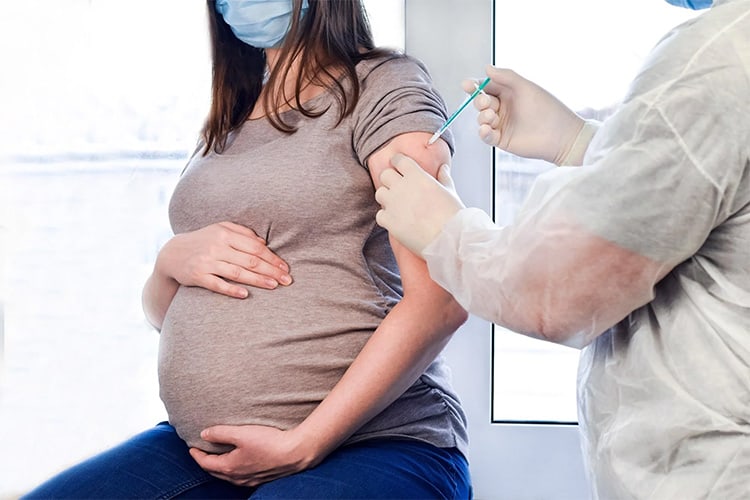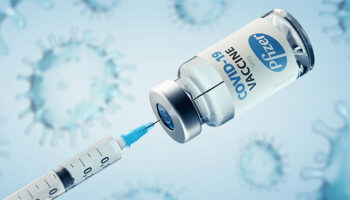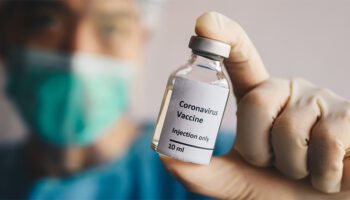Table of Contents
The CDC is urging pregnant women to get the COVID-19 vaccine. The number of deaths from COVID-19 among pregnant women hit a new record this past August. You can read more about the vaccination program and the v-safe pregnancy registry. Here are some other reasons to get the COVID-19 vaccine. If you have concerns about this virus, speak to your doctor.

CDC urges pregnant women to get COVID-19 vaccine
The CDC has recently updated its COVID-19 vaccination recommendations for pregnant women after analyzing safety data. The new guidance, which covers all trimester of pregnancy, says there is no evidence of an increased risk of miscarriage and the miscarriage rate is just 13%, well within the normal range. The updated guidelines echo recent recommendations from leading obstetric groups. In April, the CDC encouraged pregnant women to consider vaccination, but not to do so until they were certain they were healthy. Today, that advice is valid for all women planning a pregnancy or if they are already pregnant.
Three health organizations have called for mitigation strategies to curb the spread of the H1N1 virus. These strategies include wearing masks, keeping social distance, and washing hands frequently. In the meantime, California’s Department of Public Health has made it mandatory for healthcare providers and patients to be tested for COVID-19 by Dec. 14. Although it is unclear how widespread the new requirements will be, nurses’ unions have expressed concerns about the lack of safeguards for frontline workers.
The administration will send a supplemental supply of the COVID-19 vaccination to federally qualified health centers next week. It will initially focus on rural areas and underserved communities to increase the supply of the vaccine. However, if this is successful, it is likely to reduce the shortage of the vaccine. The CDC urges pregnant women to get COVID-19 vaccine as deaths hit a new record.
The CDC urges pregnant women to get the COVID-19 vaccine as the number of unvaccinated mothers hits a new record. The lack of adequate data has led to conflicting advice from medical authorities. As a result, many pharmacies have turned pregnant women away. The vaccine is safe for both mothers and babies. This means that there is a growing need for more vaccinations to combat the growing risk of the disease.
Number of deaths from COVID-19 among pregnant women reaches record high in August
The Centers for Disease Control and Prevention announced that the number of COVID-19-related deaths among pregnant women reached a new record high in August, with 21 babies and three mothers having died. Although only about a third of pregnant women are protected from the virus, the CDC has issued a health advisory for those expecting to give birth. The CDC says that pregnant women should get vaccinated against COVID-19 to avoid the deadly symptoms that can be associated with it.
China recently reported two covid-19 related deaths. The deaths occurred in the province of Jilin, and both had underlying medical conditions. In the province, nearly two-thirds of the infections were reported, but both women had symptoms similar to covid. Nevertheless, the death toll is higher than in most countries. The country plans to conduct a mass screening of its 7.4 million residents in mid-March.
According to the Office for National Statistics (ONS), more than 399,820 people in the UK tested positive for COVID-19 during the week starting 28 February. However, this number is still less than the estimated 4.3 million cases in the first week of 2022. The number of deaths caused by COVID in England is estimated at three million, which is one in 16 pregnant women.
Though deaths among pregnant women from COVID-19 reached a record high in August, the corresponding number of new cases has dropped by 75 percent from mid-January. Meanwhile, the number of hospitalizations and deaths has stabilized at around 2,500 per day. New infections have decreased almost everywhere across the country, with Connecticut, Indiana, and Nebraska reporting the lowest number of new infections.
CDC recommends vaccination
Despite the safety risks, the CDC continues to recommend vaccines for pregnant women as deaths from the virus hit a new record. While the data were incomplete when the vaccine was first approved, doctors turned to each other for best practices. Some consulted regulatory filings and medical journals. Others joined registries of women who opted to get the shot. The registry helped researchers track health outcomes.
Since the last report, hundreds of thousands of pregnant women have gotten the vaccine, and real-world case studies have shown the positive benefits. Meanwhile, the new CDC report highlights the risks of infections in women who are unvaccinated. The report also notes that there is no proof to suggest that COVID-19 vaccination poses a risk to pregnant women. This is yet another reason to get vaccinated.
Vaccination rates for younger Americans are much lower than for the general population. As the pandemic spreads, younger people have been falling ill at alarming rates. A new surveillance network was established in 2021 to monitor infections and deaths related to COVID. A new study indicates that 97% of pregnant people who have been hospitalized with COVID have not received the vaccine. The disease can cause severe illness and even death. Other adverse outcomes may include preterm birth, admission to an intensive care unit, and stillbirth.
The CDC has revised its recommendations for the second dose of the COVID vaccine. This may result in higher antibody levels after the second dose and reduced risks of myocarditis associated with COVID. This vaccine is also recommended for males aged 12 to 39. If you’re pregnant and have never vaccinated, you should schedule your vaccination as soon as possible. If you have any questions about vaccination, contact your doctor or pharmacist.
CDC’s v-safe pregnancy registry
The CDC’s V-safe pregnancy registry for COVID-19 vaccination collects information from pregnant women who have received the COVID-19 vaccine. This information is useful in making informed decisions regarding the pregnancy-safe use of COVID-19. If you’re considering enrolling in the registry, make sure you understand the requirements and terms. Once you have enrolled, you’ll receive periodic text messages and web surveys from the CDC, including updates on your condition and the vaccine. You can opt-out of the registry at any time.
The CDC’s v-safe pregnancy-registry includes data on almost 150,000 pregnant women. In this study, researchers determined that the COVID-19 vaccination does not increase the risk of miscarriage in pregnant women. However, the results cannot be relied on yet. This study has several limitations, and there is still a need for more research. In the meantime, parents should be aware of the potential risks of COVID-19 vaccine.
The CDC’s v-safe pregnancy registration database has no correlation with background rates of adverse pregnancy outcomes. In fact, the rate of spontaneous abortion after COVID-19 vaccination is similar to the background rate. Further, no ideal denominator has been reported in the published literature. The v-safe registry is a voluntary, smartphone-based surveillance system. It helps establish the safety of COVID-19 vaccine.
The v-safe registration process involves filling out an online survey, and providing details about your vaccination history. Once your details are submitted, you’ll receive a text message containing a verification code. You’ll also need to complete a health check-in for your child. You can register every member of your family, including yourself, by using your smart phone.
Johnson & Johnson’s COVID-19 vaccine linked to blood clots
The manufacturer of the COVID-19 vaccine, J&J, has announced that it is reviewing the safety of this pregnancy-safety vaccine, which has caused blood clots in some cases. This vaccine is not only linked to serious clots, but also to an increased risk of blood cancer, especially for women who are pregnant. A study from Oxford University found that infected people were at eight to ten times as likely to develop a cerebral venous sinus thrombosis as those who had received the vaccine. In addition, individuals who refused the vaccine are at an increased risk of blood clots after contracting COVID-19.
The latest reports suggest that women who got the vaccine have developed a rare type of blood clot. The vaccine has been linked to blood clots in seven women and one man. It has been given with a warning that may cause a rare blood-clotting disorder. The vaccine has been suspended in the US because of the concerns over its safety.
A recent study published in the New England Journal of Medicine reveals that the J&J vaccine is associated with an increased risk of developing blood clots in pregnant women. This clotting disorder, called thrombosis with thrombocytopenia syndrome (TTS), is more common in women who use hormonal contraception. However, experts believe that this increased risk is not caused by pregnancy.
In addition to the concerns surrounding the vaccine, several women interviewed by The 19th expressed concerns about their own health and the availability of the vaccine. Megan Parcell, a resident of Connecticut, had the Johnson & Johnson COVID-19 vaccine at a CVS pharmacy last week. While she did not experience any symptoms, she says she will contact her doctor if the blood clots persist.
People also read :


